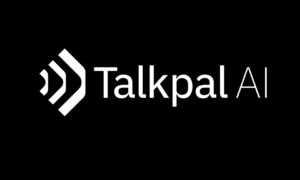EdTech enterprise is playing a transformative role in Maryland’s education landscape by managing curriculum innovation and influencing policy reform. These companies are helping schools integrate cutting-edge technology into the classroom, offering personalized learning experiences, and supporting state initiatives aimed at expanding STEM education and digital literacy. As Maryland continues to prioritize the integration of technology in education, EdTech startups will remain crucial partners in shaping both the curriculum and the broader education policy framework. By addressing challenges such as the digital divide and scaling their solutions, these startups have the potential to revolutionize education in the state, providing students with the skills and knowledge they need to succeed in the digital age.
Introduction:
This article explores how EdTech startups are impacting Maryland’s education policy and curriculum development, focusing on the benefits, challenges, and key players involved in this transformation.
The Growing Influence of EdTech in Maryland:
The education sector in Maryland has long recognized the need for technology integration to keep pace with the rapidly changing demands of the 21st century. From K-12 to higher education, schools are now more focused than ever on leveraging technology to enhance teaching and learning experiences. EdTech startups, in particular, have been instrumental in introducing innovative tools that support personalized learning, digital literacy, and collaborative learning environments.
Maryland’s state policies have increasingly leaned toward the integration of digital tools in classrooms. This is especially evident in curriculum reforms that prioritize STEM (Science, Technology, Engineering, and Mathematics) education and the use of digital platforms to manage learning. With these policy shifts, EdTech startups have found a fertile ground to contribute to meaningful educational change. By aligning their products and services with the state’s education goals, they are helping shape new educational standards.
EdTech Startups and Curriculum Innovation:
One of the most significant ways EdTech startups are impacting education in Maryland is through curriculum innovation. Traditional teaching methods are being augmented with interactive and personalized digital tools that cater to diverse learning styles. These innovations help educators create more engaging and adaptive lessons, which in turn improve student outcomes.
For example, startups like ThinkCERCA provide schools with digital tools for teaching critical thinking and literacy across subjects. By offering differentiated instruction and personalized feedback, these tools align with Maryland’s curriculum standards while providing a more dynamic learning experience. Teachers are able to customize their lessons based on student data, ensuring that each learner’s needs are met.
Another key player is Nearpod, which offers interactive lesson plans that incorporate virtual reality (VR) experiences, videos, and quizzes. These resources make it easier for teachers to bring complex concepts to life, fostering a more immersive learning environment. In doing so, Nearpod supports Maryland’s efforts to incorporate technology into the classroom and promote curriculum innovation that is both engaging and effective.
Policy Alignment:
EdTech’s Role in Shaping Education Frameworks:
While EdTech startups are driving curriculum innovation, they are also influencing broader education policies in Maryland. The Maryland State Department of Education (MSDE) and local school districts have increasingly sought to integrate technology as a means of addressing disparities in education and preparing students for the future workforce. As a result, many startups are working closely with policymakers to ensure their products align with the state’s education goals.
For instance, the Maryland Technology Development Corporation (TEDCO) provides funding and support to EdTech startups that demonstrate the potential to improve educational outcomes. By fostering public-private partnerships, TEDCO encourages collaboration between entrepreneurs and educators to create solutions that address real-world challenges in the education system. This initiative highlights the role of EdTech startups in informing policy decisions and curriculum standards.
In addition to influencing policy at the state level, some EdTech startups are involved in shaping local education frameworks. Companies like Kiddom, which offers a digital curriculum management platform, are helping districts across Maryland create more cohesive and accessible curriculums. By integrating digital tools that provide real-time feedback and analytics, Kiddom enables schools to align their curriculum with state standards while offering personalized learning pathways for students.
Supporting STEM and Digital Literacy through Policy Initiatives:
One of Maryland’s key education priorities is expanding access to STEM education and digital literacy programs. To achieve this goal, the state has introduced various policy initiatives designed to integrate technology into STEM learning. EdTech startups are essential partners in this effort, providing innovative tools that make it easier for students to develop critical skills in science, technology, engineering, and math.
Startups like STEMscopes are at the forefront of this movement. By offering comprehensive STEM curricula for K-12 schools, STEMscopes supports Maryland’s goal of creating a technologically proficient workforce. The platform’s digital resources, including videos, simulations, and hands-on activities, give students a deeper understanding of STEM concepts while promoting critical thinking and problem-solving skills.
Similarly, platforms like Code.org have partnered with Maryland schools to expand access to computer science education. By offering free coding lessons and teacher training, Code.org aligns with state policies aimed at closing the digital skills gap. As a result, more students in Maryland are gaining the technical knowledge needed to thrive in an increasingly digital economy.
Challenges and Opportunities for EdTech Startups:
While EdTech startups in Maryland have made significant strides in transforming education, they also face several challenges. One of the most pressing issues is the digital divide, which affects students in underserved communities. Despite advances in technology, not all students have equal access to the devices and internet connectivity needed to fully benefit from digital learning platforms. Startups must work alongside policymakers to address these disparities and ensure that all students can participate in tech-driven education.
Additionally, there is the challenge of scalability. Many startups struggle to implement their products on a larger scale due to funding constraints, lack of infrastructure, or resistance to change from school districts. To overcome these challenges, startups must continue building partnerships with state education agencies, local districts, and investors to expand their reach.
On the flip side, the growing demand for personalized learning and digital tools presents significant opportunities for EdTech startups. As schools continue to prioritize technology integration, startups have the chance to play a more active role in shaping both curriculum and policy. By staying aligned with state standards and addressing key educational challenges, these companies can ensure long-term success and sustainable growth.
The Benefits of EdTech-Driven Curriculum Innovation:
The impact of EdTech startups on curriculum innovation is undeniable. By introducing new tools and learning models, these companies are helping schools create more flexible, engaging, and inclusive learning environments. This shift toward digital learning benefits not only students but also teachers, who can leverage technology to streamline lesson planning, track student progress, and offer personalized support.
One of the most significant benefits of EdTech-driven curriculum innovation is the ability to create adaptive learning experiences. Platforms like DreamBox use artificial intelligence (AI) to analyze student performance and adjust lessons accordingly. This level of personalization ensures that each student receives the right level of challenge and support, which leads to improved learning outcomes.
Moreover, EdTech tools help foster collaboration between teachers, students, and parents. Many platforms offer real-time communication features that allow parents to stay informed about their child’s progress and participate more actively in their education. This collaborative approach helps build stronger relationships between schools and families, ultimately leading to a more supportive learning environment.
Conclusion:
Since recent years, educational technology (EdTech) has emerged as a transformative force in classrooms across the United States. Maryland, known for its diverse education system, has embraced EdTech startups that are driving both policy reform and curriculum innovation. These startups are not only providing technological solutions for students and educators but are also influencing the way education is structured and delivered. By bridging the gap between policy frameworks and cutting-edge learning methods, EdTech startups play a crucial role in shaping the future of education in Maryland.



































